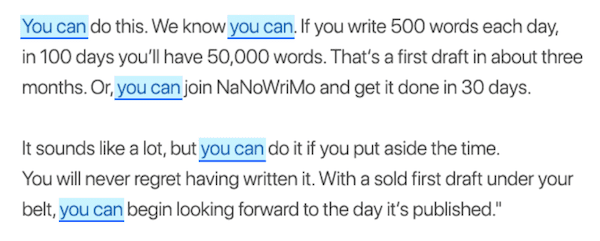
Discovering how to polish your writing is a matter of learning, checking, editing, and proofreading.
When you start writing your first draft, concentrate purely on getting all your ideas down. You shouldn’t worry at all about spelling and grammar checking at this stage.
Good writers know that ideas are the most valuable asset in any piece of writing. It doesn’t matter if it’s a blog post or a book; the saying, write drunk, edit sober, is probably true.
But once you finish your first draft, it is time to improve your writing.
What can I do to polish my writing?
There are five basic areas of writing that can turn your rough diamond into a great text.
You can apply these tips to online writing, articles, essays, or even a manuscript to improve your writing skills.
If you are writing every day, you should be applying these by habit, no matter your style of writing.
Of course, there are many ways to improve a text, from style checking to intelligent grammar selection to editing.
But good, clear writing using natural language can always be tidied up by using these five simple checks.
Check your spelling and grammar
You must always check your text for basic grammatical mistakes. Spell-checking is also an absolute necessity.
But neither of these checks is part of polishing up your writing. They are only about your writing accuracy.
When you do these error checks, never trust one tool.
The checkers in Word and other word processors are not very reliable. It is better to use two different tools to check your text for common and basic mistakes.
Use free tools to help you
There are many free online writing tools you can use.
Make sure you do two passes of your checks using two different tools. No online tool is perfect, so using two will help find more possible errors.
Then, take the time to read your text and look for words that you spelled correctly but incorrectly applied.
Most spell checkers struggle to find words that are spelled correctly but are not in the correct context.
You could have a confusing word such as, than instead of then. Other examples are off instead of, or there when their is correct.
Now you are ready to craft and polish your writing.
1. Check for passive sentences
Any good style checker will help you find passive structures in your texts. Whenever possible, you should re-write these passive sentences and change them to the active voice.
When you use the active voice, you can describe people, places, things, and reasons in much more detail.
You will find it very easy to do with a little practice, and practice makes perfect. All you need to do is make sure that the subject of the sentence performs the action of the verb.
Here is a simple example of how to change a sentence from passive to active.
Passive: Six houses were destroyed by the forest fire.
Active: The forest fire destroyed six houses.
You can read more about the passive voice and how to avoid it.
2. Check for repeated words
All writers tend to repeat certain words or phrases in a text. These are not easy to find, especially if you are checking a long document.

Look at the simple example above. You can see how distracting it is for a reader to find the same phrase repeatedly.
Check your writing carefully for repeated words and try to find synonyms that will add more variety.
If you use Prowritingaid to check your writing, it has a terrific reporting tool for finding repeats.
It works extremely accurately even in a very long document such as a book manuscript.
Another way to avoid repeated words is to use the grammar technique of gapping.
3. Check for run-on sentences
A run-on sentence is a mistake that occurs when two independent clauses that are complete sentences are joined together.
But they are not correctly connected. Clauses that are not joined accurately can create confusion for a reader.
Conjunctions like and, but, for, nor, yet, or, so can often fix the problem.
But you can also separate a run-on sentence into two sentences.
We’ll go to the cinema, then we’re going to have dinner. Incorrect
We’ll go to the cinema and then we’re going to have dinner. Correct
We’ll go to the cinema. Then we’re going to have dinner. Correct
4. Check for sentence fragments
The common cause of this mistake is that the sentence is lacking a subject or a verb. There could also be a separated prepositional phrase or dependent clause.
There is no subject
Looking forward to meeting you on Saturday. Incorrect
I’m looking forward to meeting you on Saturday. Correct
There is no verb
I found a great new job. The remedy for all my financial problems. Incorrect
I found a great new job, which will be the remedy for all my financial problems. Correct
Separated prepositional phrase
He lived in Rome. For many years. Incorrect
He lived in Rome for many years. Correct
Dependent clause fragment
John ran quickly to his office. To be sure he was on time. Incorrect
To be sure he was on time, John ran quickly to his office. Correct
5. Check for slang and mixed formality
You might often use slang words or expressions in your writing. But when you do, be careful.
The big problem is that you could be mixing your levels of register and formality.
“Wow, man! Hey, what an exciting time we all had at the sales conference.” Poor
“I must say that the sales conference was exciting for everyone involved.” Better
There are five levels of formality register in English. When you start working on your text, make sure that you are not mixing your registers.
This can happen at a single sentence level or over more broad aspects of your writing.
In particular, fiction writers should pay close attention to dialogue to ensure characters maintain a constant register when they speak.
Summary
There are many ways you can improve your writing and make it more enjoyable to read. But these five issues will help you on your way.
Your aim is to enhance your clarity and develop your topics and themes with better vocabulary, phrasing, and more positive structures.
The big benefit is that, over time, it will help you become a better writer.
You should always think about it this way. “Polishing my writing offers me the chance to learn.”
Learning to write well is always about you wanting to investigate.
When you take the time to research and be curious about all aspects of grammar, literary devices, and style, your writing will improve dramatically.
Related reading: 18 Strange And Weird English Words For Everyday Objects
Share This Article



Great tips, I need it for sure
Thank you for this great posting, Derek. Have a beautiful weekend! Michael.
The thing I have the biggest problem with is run-on sentences. I find it difficult to recognize them. Your example, for instance, seems fine to me! I have no problem understanding that we will eat after we’ve been to the cinema.
I think using software such as Grammarly or Hemingway help, though. They also pick up other things like adverbs and passive voice.